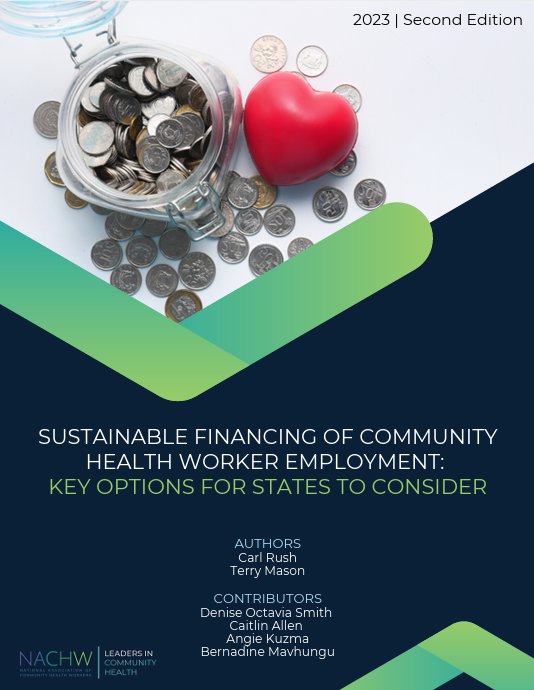Headline
This report outlines key strategies for states to sustainably finance the community health worker (CHW) workforce.
Background
Interest in the CHW workforce has grown as their impact on clinical and social outcomes in health care settings has become increasingly recognized. However, sustainable financing for CHWs remains a challenge for states, as many of these positions rely on temporary funding sources, like grants. This report outlines key financing options for state policymakers to ensure CHWs roles and services are sustainably funded.
Findings
Some key financing options offered in this report include:
- Federal government funds available through public health and block grants offered by agencies under the U.S. Department of Health and Human Services;
- State and local government funds offered through appropriations and local tax revenues;
- Health care provider funds to support CHWs are part of a system’s core administrative budget;
- Blended or braided funding, which includes combining funds from multiple sources; and
- State Medicaid policy mechanisms, including program waivers, state plan amendments, prospective payment systems, and managed care contracts.
The options outlined in the report include an overview of the funding source, as well as potential limitations and state or national examples.
Policy/Program Takeaways
State-level action is crucial to achieving long-term financial sustainability for CHWs, requiring strategic integration of this workforce into existing health care and public health funding systems.

